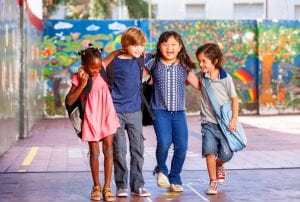By Maxine Roeper Cohen, M.S.
As parents, we are concerned about our children’s popularity with others. We want them to have friends and develop a social sensibility. Developmentally, peers (children who are the same age) become more important than adults as children grow, especially in the pre-teen and teen years. So-called “popular” children can be seen as empathetic and friendly to everyone, or they can be the mean girls and boys from the “cool” crowd and use their popularity to demean others. In a 2015 article in the “Journal of Child Development”, researchers found that popular children have what is called an advanced “theory of mind” in which they can assess their own and others’ mind sets. In other words, these children understand how they and others think, feel, and behave. This ability can be used to great advantage in being empathetic and caring towards others, or it can be used to manipulate and belittle others.
The researchers analyzed data from 20 studies involving 2,096 children (aged 2-10) from 10 countries. Popularity was judged by teacher evaluations and peer nominations. The researchers determined two types of popularity. The first is “perceived popularity” which involves the mean girls and boys who zero in to what others want and feel, and then use that ability to gossip, manipulate, and possibly humiliate others. The second type is called “sociometric popularity” which involves that same skill of tuning in to others’ wants and feelings, but using this skill to be caring and sensitive. As parents, we can use this distinction to help our growing children understand what type of popularity is positive and admirable to strive for.
Children can be taught social skills, especially those where we try to understand somebody else’s perspective. These skills start in pre-school years when children begin to navigate getting along with others while on the playground or in group daycare. Managing conflicts becomes important, and parents need to step back a bit and let children try to reach their own resolutions. Children need to practice conversation skills and putting themselves in another person’s shoes to understand other perspectives. As a family, try reading a novel together and understand a main character’s mindset, how that character thinks and feels. This is good practice in learning another person’s perspective. Another way to develop this skill is to play chess and cards together since these games require thinking and predicting how others will act.
Try to distinguish between these two types popularity with your children. Ask them to determine whether their peers are popular by being caring and sensitive, or if they are merely powerful and can inflict domination over others by being mean. This empowers your children to ignore the merely self-impressed bully, and encourages them to be more caring and look for like-minded friends.
Maxine Roeper Cohen is a Parent Educator with Cornell Cooperative Extension of Suffolk County’s Family Health and Wellness Program. She can be reached at mc333@cornell.edu.
